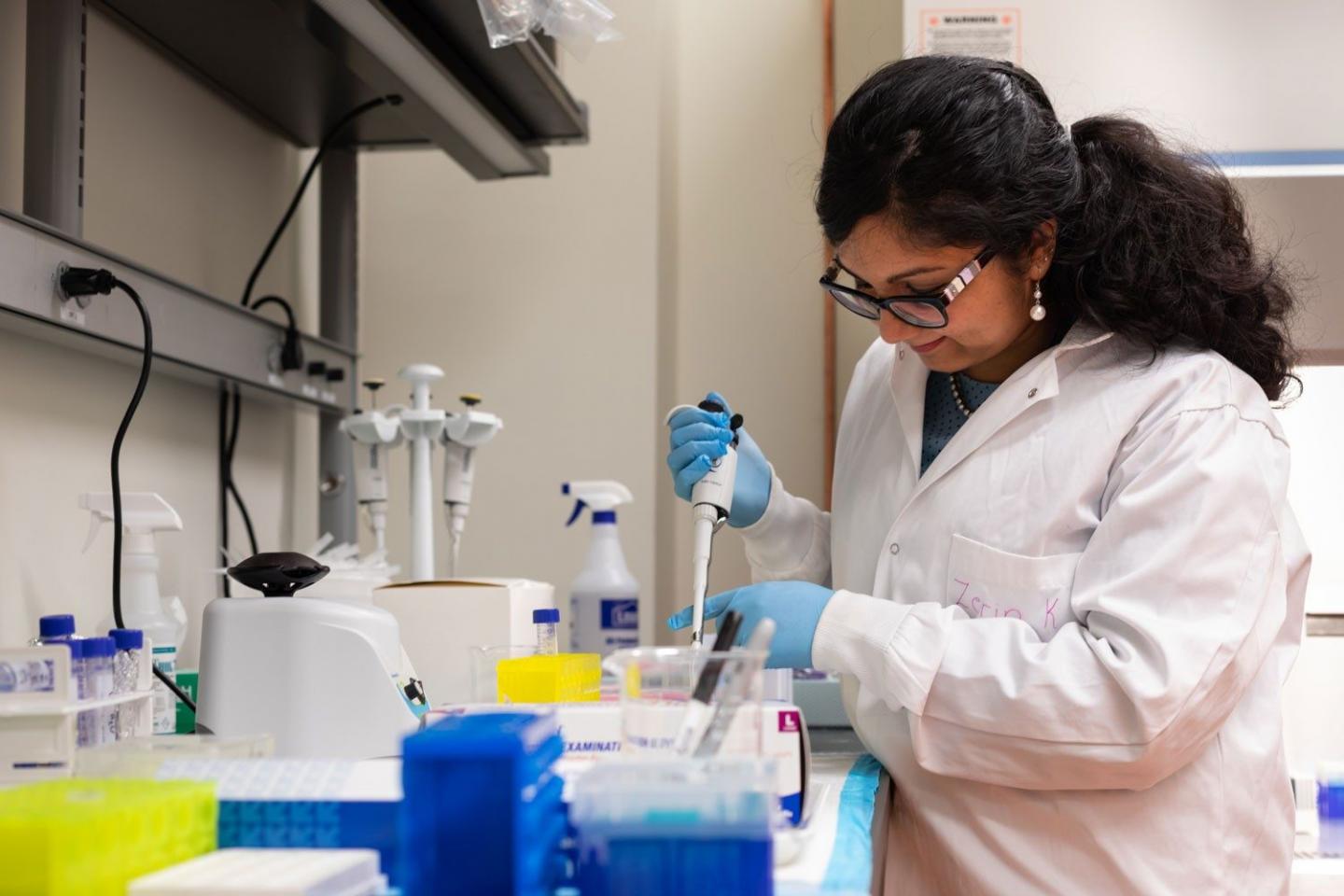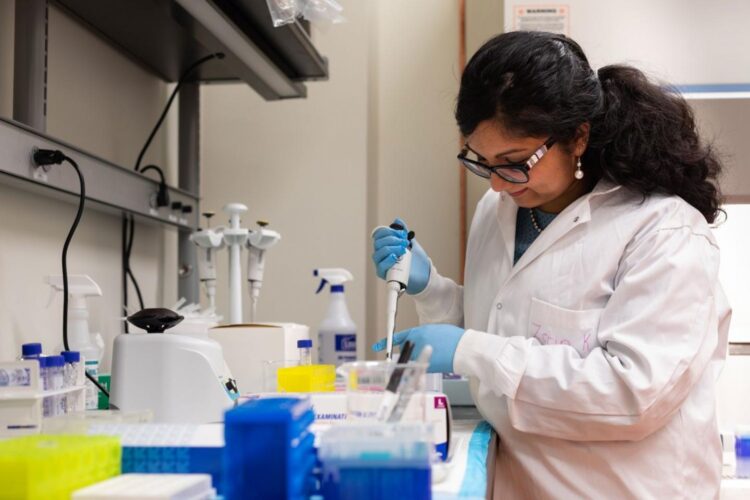
Credit: Virginia Tech
The Natural Sciences and Engineering Research Council of Canada (NSERC) supports research that results in “breakthrough answers to timeless questions.” When choosing awardees, the council looks for creativity and innovation, two qualities they see at the heart of all research advances.
Zerin Mahzabin Khan, a doctoral student in biomedical engineering and mechanics as well as the computational tissue engineering program, was awarded the Postgraduate Scholarship-Doctoral award from NSERC for her work developing a minimally invasive treatment for glioblastoma. She is the first-ever Virginia Tech student recipient of this award.
Glioblastoma is one of the most aggressive forms of brain cancer. While cancer isn’t cured, many other forms of cancer have seen improvement with treatments that can extend the patient’s life or help to manage the cancer. This is not the case for glioblastoma. Throughout the years, there has been little improvement in life expectancy for those with glioblastoma.
“I was floored by the statistics I read on glioblastoma brain cancer,” Khan said. “The percentage of diagnosed people who die is staggering, and that number hasn’t improved much over the past decades. Nothing seems to be helping. With my research background in targeted treatments, I thought, ‘I want to develop an innovative way to treat brain cancer.’ It’s very scary to think someone you know could be diagnosed with brain cancer and then wonder if there’s any hope for their survival. No one should have to go through that.”
Khan is a third-year doctoral student, conducting research in two biomedical engineering and mechanics labs: her primary advisor Scott Verbridge’s lab, the Laboratory of Integrative Tumor Ecology and her co-advisor Eli Vlaisavljevich’s lab, the Therapeutic Ultrasound and Noninvasive Therapies Laboratory.
In applying for the highly competitive doctoral award from NSERC, Khan wanted to combine the three research areas she was involved in: translational cancer research and pulsed electric fields with Verbridge; focused ultrasound technology with Vlaisavljevich; and polymer chemistry with collaborator Timothy Long of Arizona State University’s Biodesign Institute.
Ultimately, Khan’s goal is to develop a polymeric material that can be used to attract the cancerous cells that may remain after surgery — cells that lead to a patient’s cancer recurring in the body later. She intends to develop an injectable hydrogel that can pull in and capture the cancerous cells through chemical and electrical stimuli. Once those cells are captured, a noninvasive method such as focused ultrasound can be used to destroy them.
“Brain cancer is so hard to treat and the prognosis is poor, so I was really interested to join my advisors’ efforts at trying to come up with novel treatments,” said Khan.
Khan traces her passion for this work back to when she was younger. Her parents would bring home books with science experiments, Khan said, and she would try to replicate the experiments in their pages.
“I participated in science fairs at school and won awards, which taught me that putting in effort can be rewarding, both in terms of motivation and being able to share knowledge and help our society in tangible ways,” said Khan. “I also remember looking at the other experiments at the science fair — experiments in biomedical engineering — and being amazed by the innovation. So it’s really neat to be here now, pursuing higher studies and research in biomedical engineering. I am grateful to my family for their constant love and support and am lucky to have had fantastic teachers, professors, advisors, and mentors who have encouraged me and shaped my experiences along the way.”
Khan began conducting research as a doctoral student at Virginia Tech in 2018, working simultaneously in the Verbridge lab and Vlaisavljevich lab on a variety of collaborative projects. The first research project, in the Vlaisavljevich lab, looked at using an injectable hydrogel and focused ultrasound to release nitric oxide particles in the body without any incisions. Hydrogel is often surgically implanted in the body, but the lab’s approach to this method enables injection with a needle to regulate wound healing.
“I’m grateful for NSERC’s support and am really excited to represent Virginia Tech,” Khan said. “Receiving this award is an honor, and I’m glad I’ll get to show others what kind of research we do here at Tech.”
Khan received bachelor’s degrees in biochemistry and chemical engineering from the University of Ottawa in Canada. She expects to graduate in 2023 with her Ph.D. in biomedical engineering from the joint Virginia Tech-Wake Forest University School of Biomedical Engineering and Sciences.
###
Media Contact
Suzanne Irby
[email protected]
Original Source
https:/





